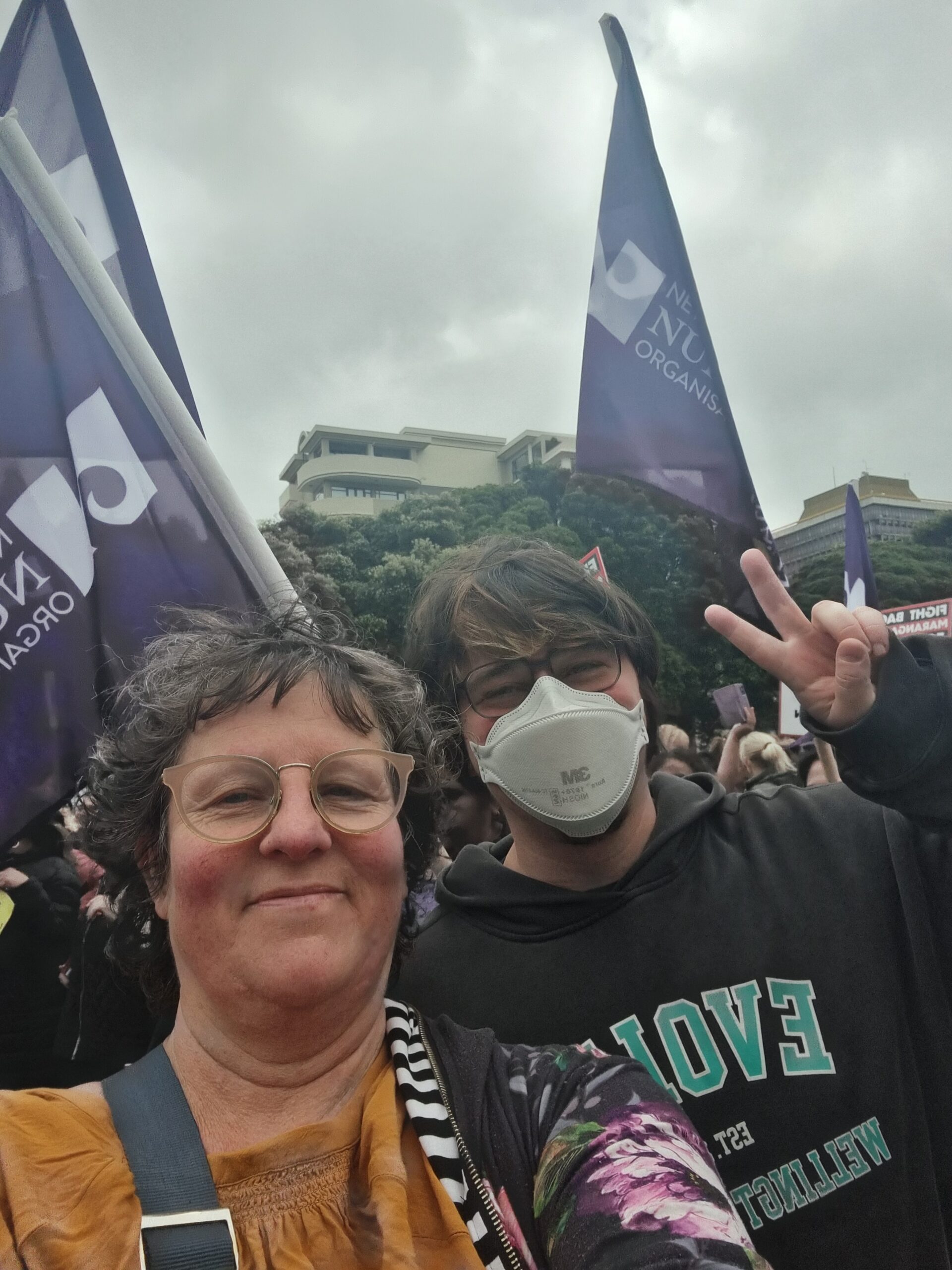Rotorua practice nurse Alisa Williams loved her job in a kaupapa Māori general practice.
“The environment was fabulous. I loved, loved, loved the environment and my workmates as well.”
Despite that, she recently quit for a better-paid hospital job.

“We were just getting slammed. Doctors, nurses, reception — all the staff,” Williams told Kaitiaki. “We’d end up with patients who needed to see a doctor and the doctors were slammed as well . . . so we’d just have to refer them to ED as there was no availability to see them.”
So when a hospital role came up in her specialty — sexual and women’s health — she applied and got it.
‘We were just getting slammed. Doctors, nurses, reception — all the staff.’
Williams said she was sad to leave primary health, her passion, just three years after graduating but trying to give quality care in 15 minutes was a lot of pressure — especially with an increasing push across the sector to see more patients and get more funding.
“I was always going over time, so you start feeling that pressure — I’d be doing notes at home well into the night.”
Leaving meant “I did feel I was letting my people down,” said Williams whose iwi are Te Arawa and Whakatohea.
But the opportunity to move into an area of interest with “significantly” more pay and less pressure — “all those things” — contributed to her decision.
“We’ve all got families and bills to pay,” she said. “The money’s better, the work conditions are better — where I am is less stress.”
Williams is one of many primary health (PHC) nurses deserting the sector for better pay elsewhere.
Others are barely hanging in there.
NZNO’s college of primary health nurses chair Tracey Morgan has said nurses are “hōhā“(angry) with the latest three per cent pay offer from PHC employers, with many contemplating leaving.
Nurses in hospitals got paid up to 18 per cent more, despite having the same skills and qualifications, she said.
A recent Victoria University study has found a third of general practices last year stopped taking new patients, mainly due to staff shortages. Calling for urgent intervention, researcher Jackie Cummings said the pay disparity between community and hospital workforces was to blame.
Williams agrees.
“In my experience, there wasn’t enough staff and it wasn’t well paid enough. There’s been talk that the pay rate is being looked at . . . but nothing happens.”
Wellington primary health nurse Emma Mokalei says practices must be funded enough to provide quality care to patients and fair pay to staff — or risk burnout and more resignations.
Pay rises in the 2023/24 NZNO-PHC collective did help gain and retain PHC nurses amid a critical global shortage — but salaries have continued to lag behind Te Whatu Ora, she said.

“It’s always going to come down to funding — for enough staff, to keep our doors open and keep us going and providing the best care for our patients,” she said.
“We’ve got lots of in-house services to offer but if we can’t retain the staff, then we can’t offer those services — so then the community loses out.”
Currently, a shortage of GPs was putting the most pressure on nurses in many practices.
‘ . . . we have high needs in the community and try to give the best care possible but [were] not able to do that’.
Several had left primary health recently due to pressure to take on more patients than they could safely manage, she said. Practices are funded per registered patient.
“That was super stressful – we have high needs in the community and try to give the best care possible but [were] not able to do that,” she said. “We had a few doctors leave which put the pressure massively on nurses to upskill.”
Now there was just one GP, instead of four serving about 4000 patients, with telehealth services, nurses and agency doctors filling the gaps. But this was not fair on nurses.
“We’re not there to be doctors. If I’m working like a doctor but not getting paid like a doctor, I’ll probably move.”
Despite the pressures and lower pay, primary health was still preferred by many nurses as there were no shifts and it could be balanced with family life.
Nurses and doctors go ‘hand in hand’
GP shortages also made it harder for nurses to complete their community prescribing and nurse practitioner (NP) papers, which all require supervision, Mokalei said.
“Nurses and doctors seemingly go hand in hand and are unable to function without one or the other.”
Another Wellington primary health nurse, Eileen McAtee, said lack of funding meant there were few incentives to upskill. She and a colleague recently trained as community nurse prescribers but didn’t get a pay rise.
Being paid less than hospital nurses makes her feel bad, especially as the work was becoming more complex.

“It does have an impact on how under-appreciated you feel — it’s about feeling valued for what you do,” said McAtee, who works at a community mental health service.
McAtee said the pay gap had lessened since before 2023 when it was as wide as $10 per hour. An extra eight per cent parity boost for PHC nurses under Labour in 2023 did bring them closer to hospital rates but they were “falling behind again” since Te Whatu Ora’s latest pay deal.
Meanwhile, patients were becoming more challenging with “huge” mental health issues.
“We’re just managing more and more – they get seen by CRS [Te Whatu Ora crisis resolution services] then get discharged straight back to us with very high acuity, suicidal ideation, chronic symptoms.”
This week alone, there had been four severe mental health crises at her service.
New Minister of Health Simeon Brown Brown has said access to primary health is a top priority for him and floated telehealth as a solution. But this was no silver bullet for the sector, especially when managing community mental health struggles, McAtee said.
“Telehealth I really don’t think is the answer for people in acute mental distress because often what people are missing is a connection.”
Pay equity claim for primary health nurses
In 2023, NZNO raised a pay equity claim that as a female-dominated workforce, primary health-care nurses and administrators have long endured gender-based pay discrimination.
Last year, the claim expanded to include 750 employers — almost all the country’s general practices and urgent care clinics. The claim — which requires extensive work to prove under the Equal Pay Act — is ongoing with progress expected this year.
NZNO pay equity claims have also been raised for nurses, midwives, kaiāwhina and administrators working in hospice, Plunket, district nursing, Awanui Laboratories and Sexual Wellbeing, and also for nurses in aged care who are not covered by the care and support workers claim. Details for each can be found here.
In 2024, NZNO, PSA and E tū joined forces to lodge a pay equity claim for 60,000 care and support workers with the Employment Relations Authority.
In July 2023, after a long battle to decide how far back nurses were owed, more than 30,000 NZNO Te Whatu Ora members voted to accept a $4 billion pay equity deal, paving the way for claims across other nursing sectors.





